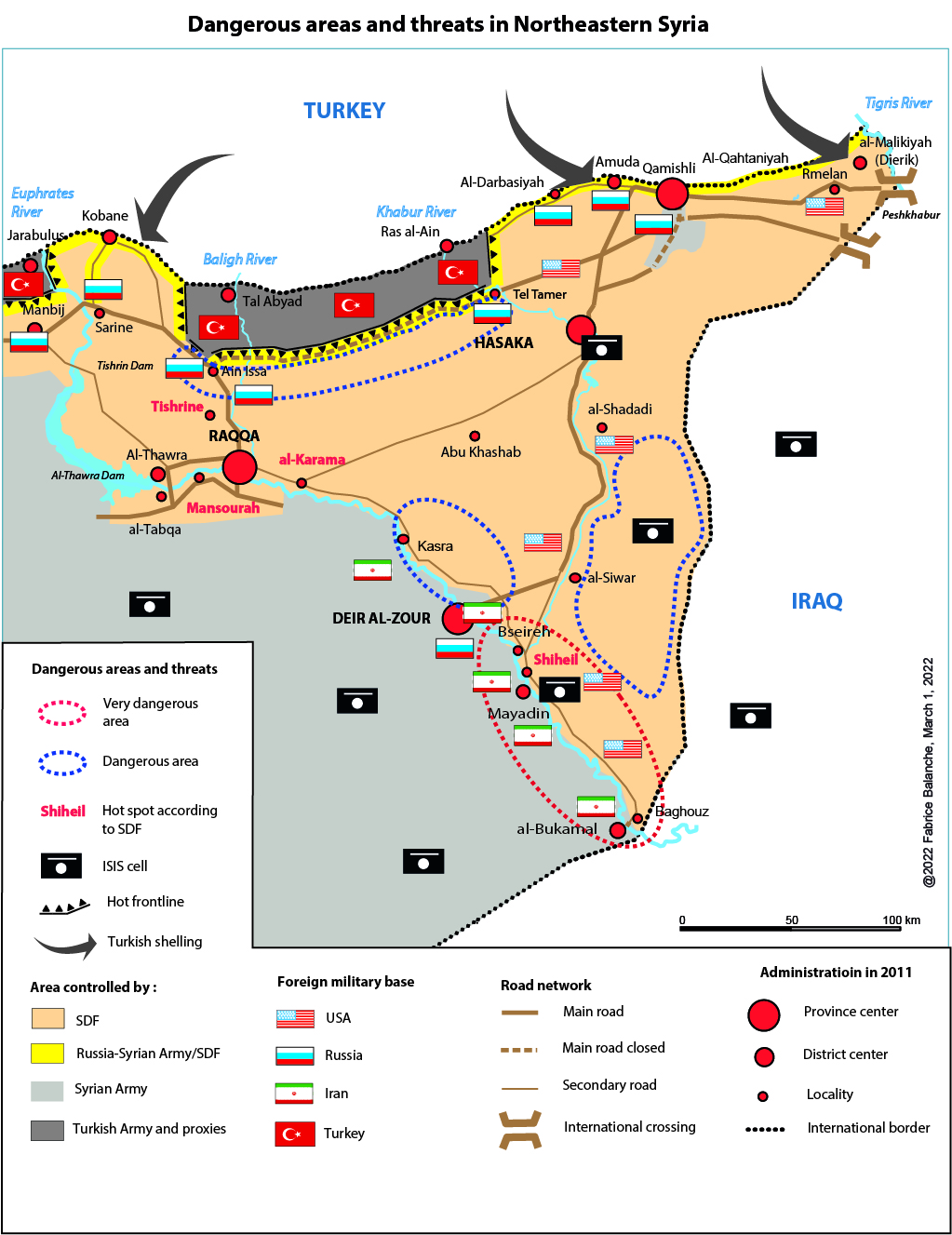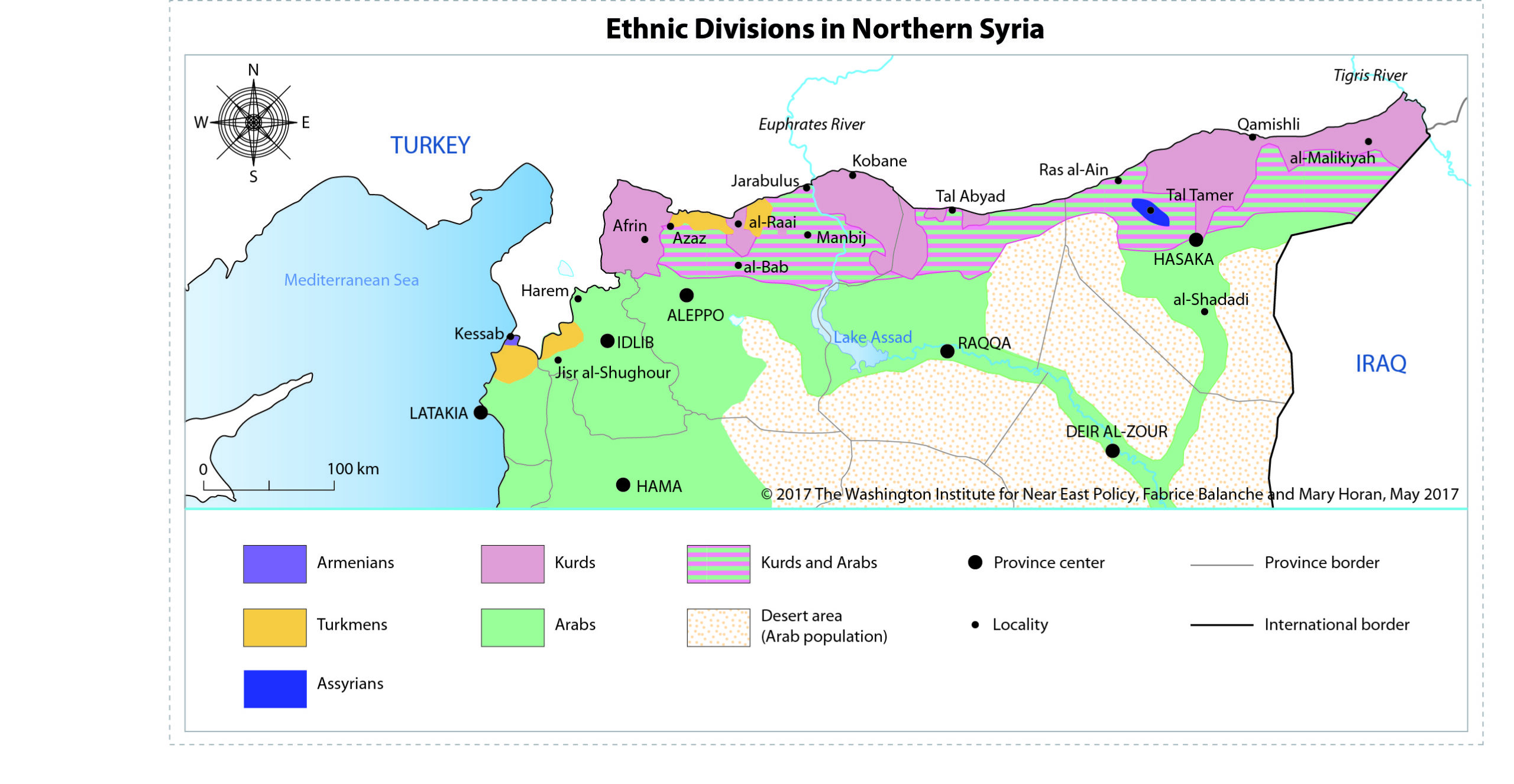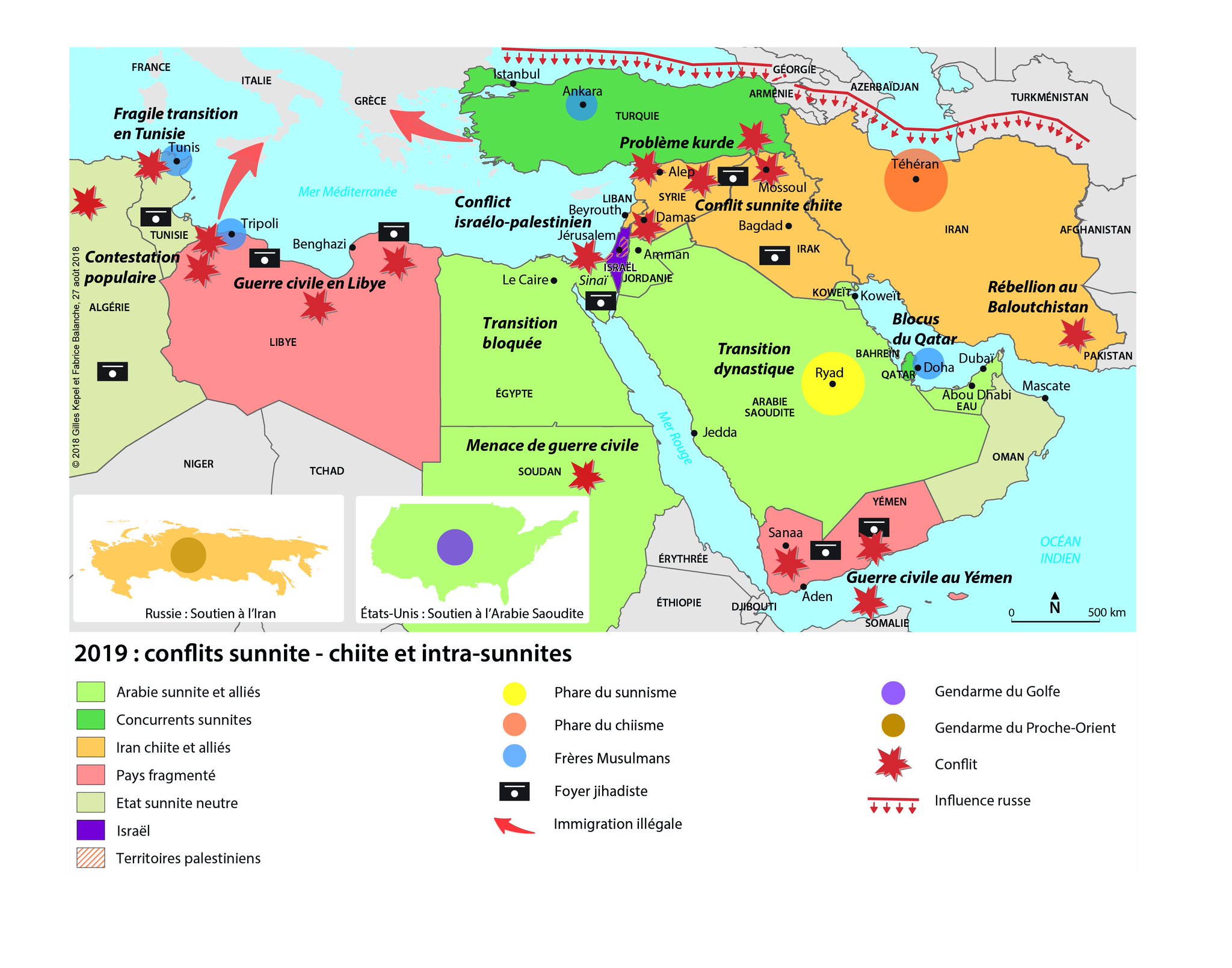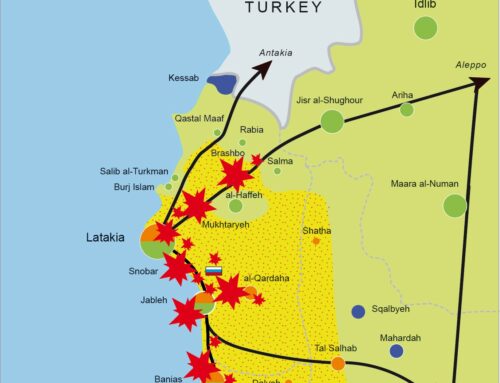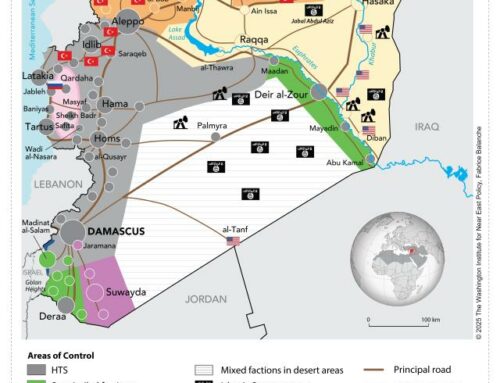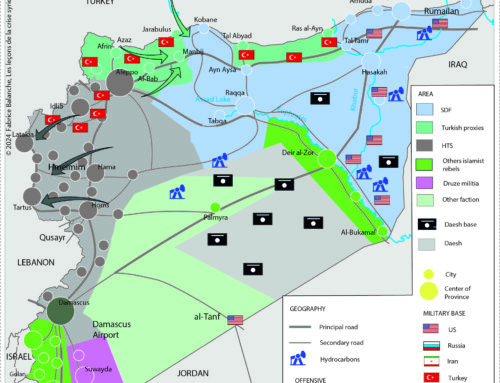This report aims to focus on the internal situation in North-East Syria in particular the relations between the Arab tribes and the Local Administration, Kurds and Arabs, the potential for destabilization coming from the Syrian government and its allies, but also from Turkey. For this, it is necessary to understand the socio-economic situation in which the Syrian northeast finds itself. Indeed, allegiances and defections are largely determined by access to resources. However, the conflict in Syria has become a global conflict. Syria finds itself on the arc of crises produced by the confrontation between the Western camp and the Russia-China couple. This axis already existed during the Cold War. The various local conflicts were recovered, aggravated or even created by the confrontation between the United States and the Soviet Union. The Arab-Israeli conflict was a typical example. This does not mean that the conflict ceased with the end of the cold war, but it simply diminished in intensity. Since 2011, and the end of the parenthesis of Western hegemony (1991-2011) over the world, conflicts have been bogged down because they are part of a global game, this is the case of Syria today.
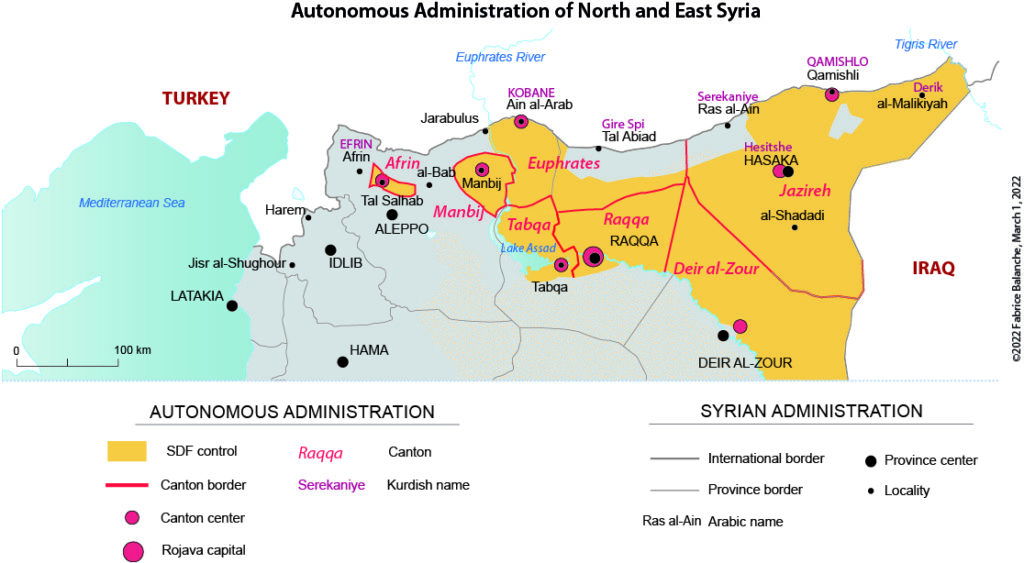
We must not neglect the internal determinants which have a strong impact on the population. But the external determinants are dominant, as we saw in October 2019, when Turkey attacked northeastern Syria with the consent of Russia and the United States. The future of North-East Syria is therefore subject to the game of the great powers. It is for this reason that we begin with the strategy of external actors. Most of the report is devoted to the internal situation, however the Arab tribal chiefs, the various notables, the members of the Local Administration and even the whole of the population, know perfectly well that their fate is decided in Washington, Moscow , Ankara and Tehran more than in Damascus, Raqqa or Qamichli. The strategy of external actors conditions life in North-East Syria, because it is very dependent on aid from Western countries. On the contrary, those who wish the destruction of the Local Administration try to destabilize it by various means: retention of the waters of the Euphrates and regular bombardments for Turkey, unexpected closure of crossing points for the regime, purchase of Arab tribes, etc
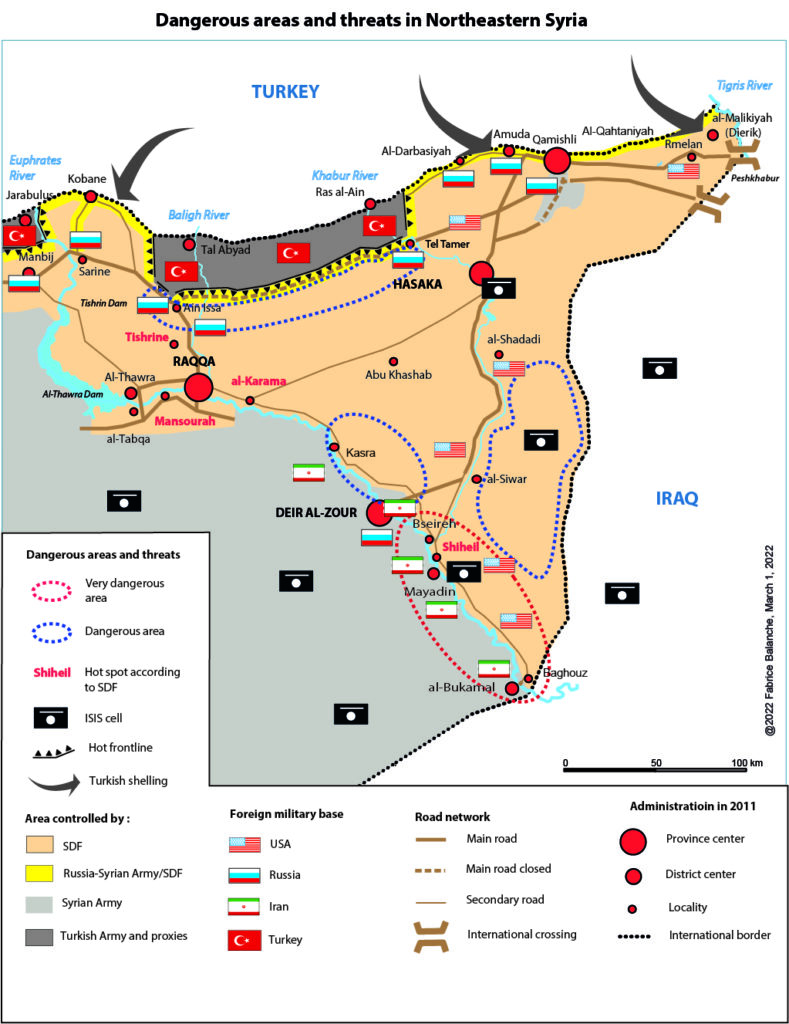
On a daily basis, the work of an NGO like MAG is therefore impacted by local logics, which are the relations between the Local Administration and the tribes, between the tribal groups, the bureaucratic functioning of the Local Administration, the economic crisis linked drought and inadequate governance, not to mention the security threat still posed by Daesh. But its activity can be brutally interrupted by a new Turkish offensive or the withdrawal of American forces from northeastern Syria. It is therefore important in future scenarios to link internal and external determinants, because the deterioration of the economy and/or social relations can also be a prerequisite for an external offensive.
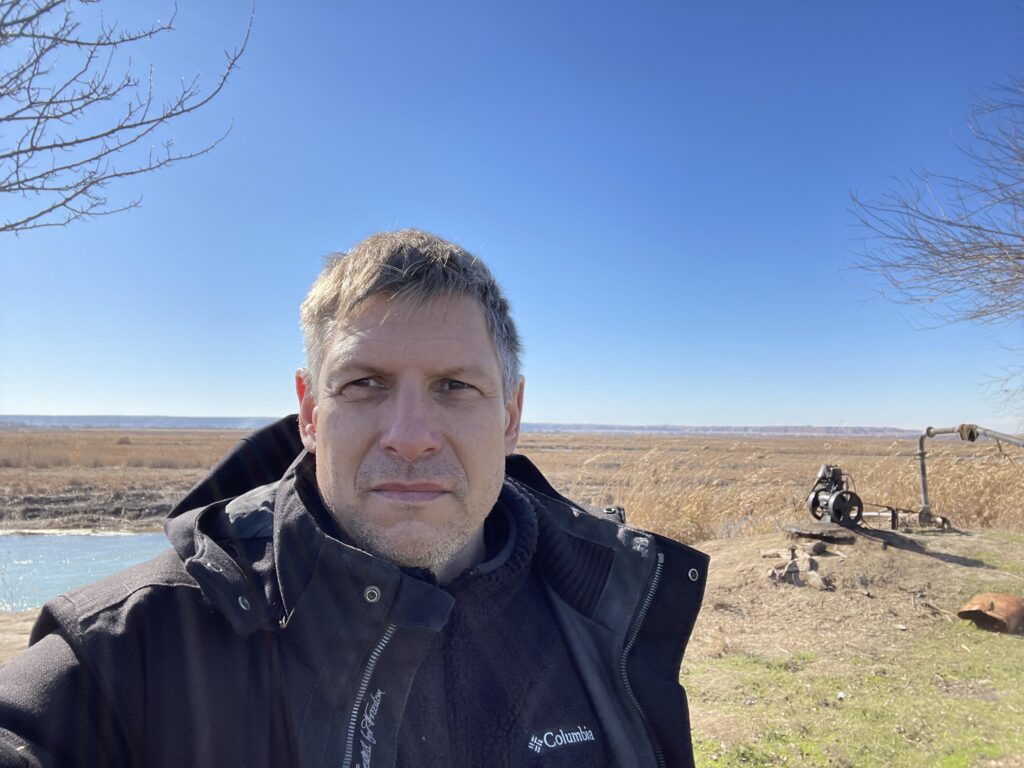
Fabrice Balanche Euphrates River 2022


